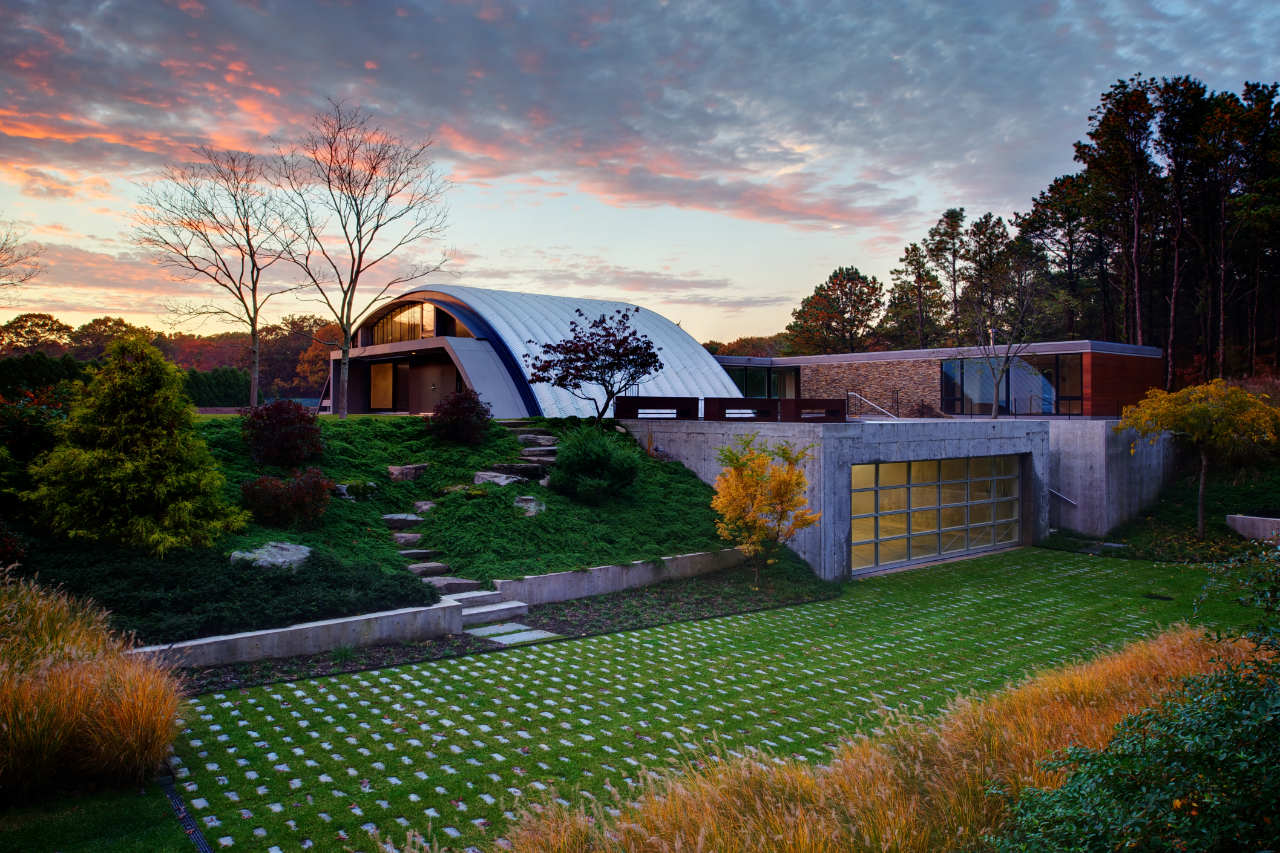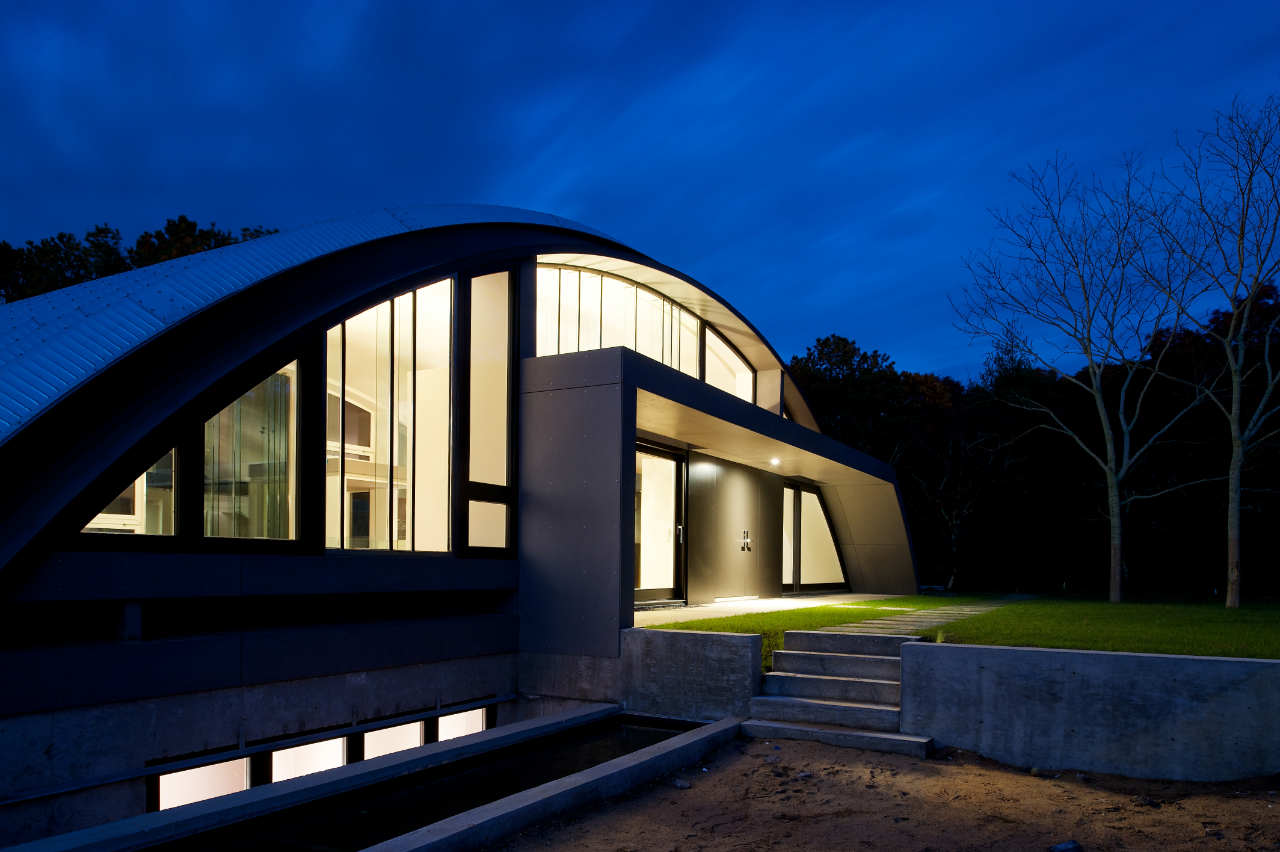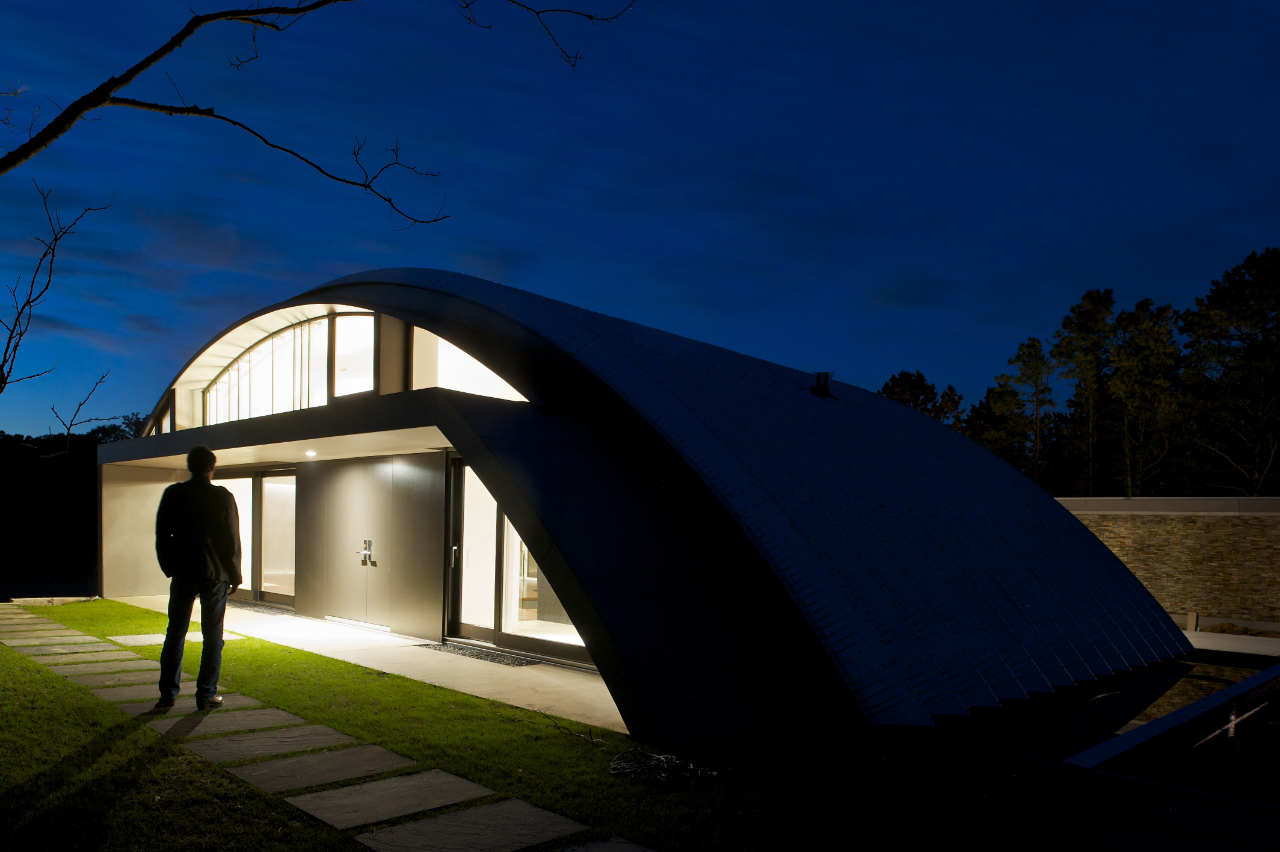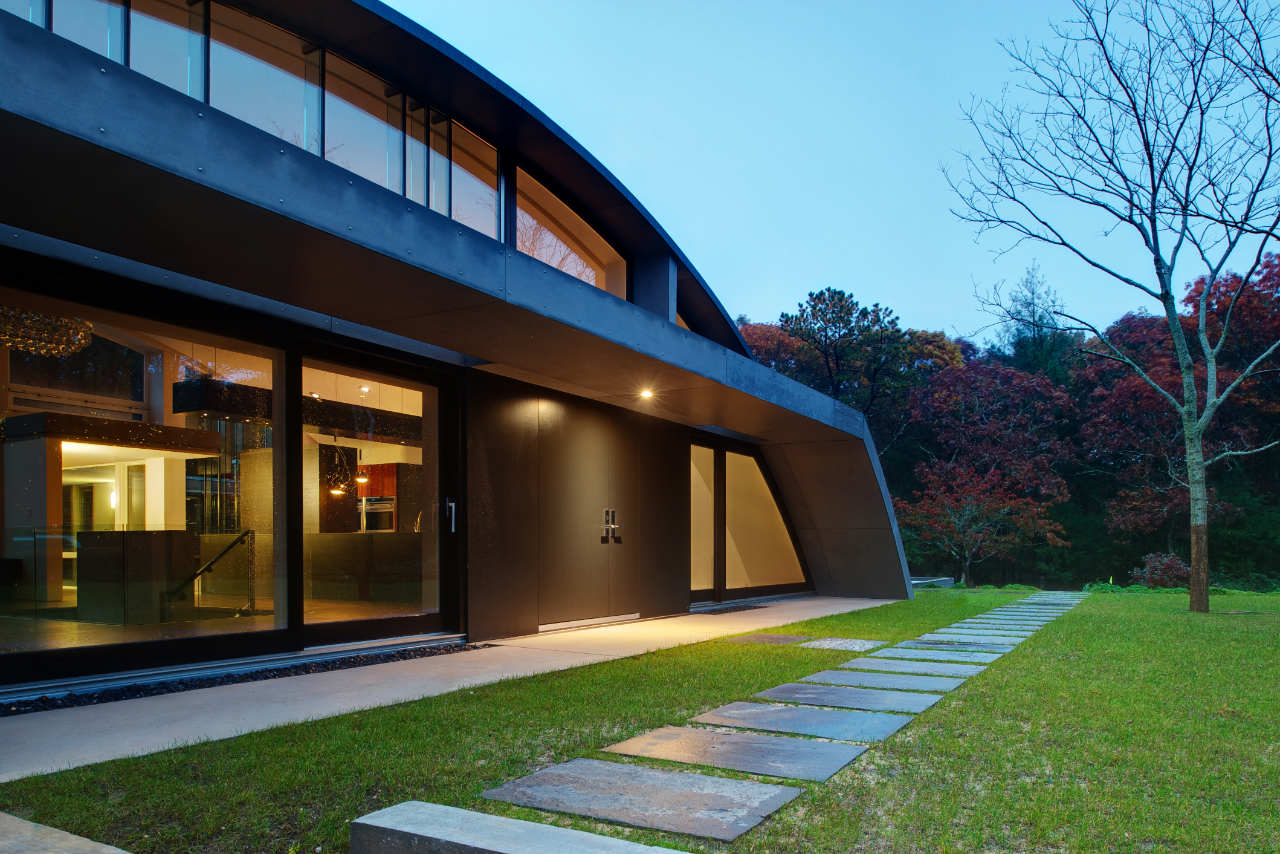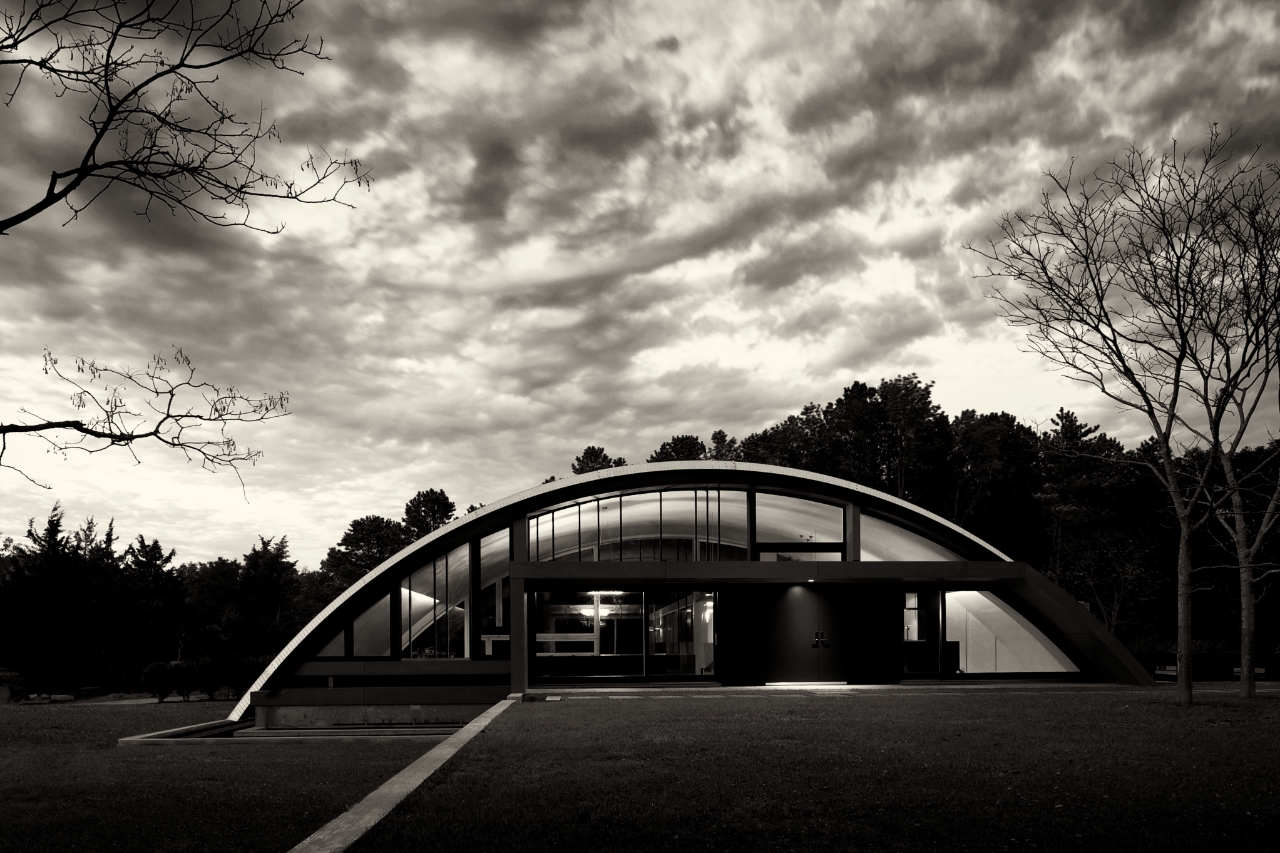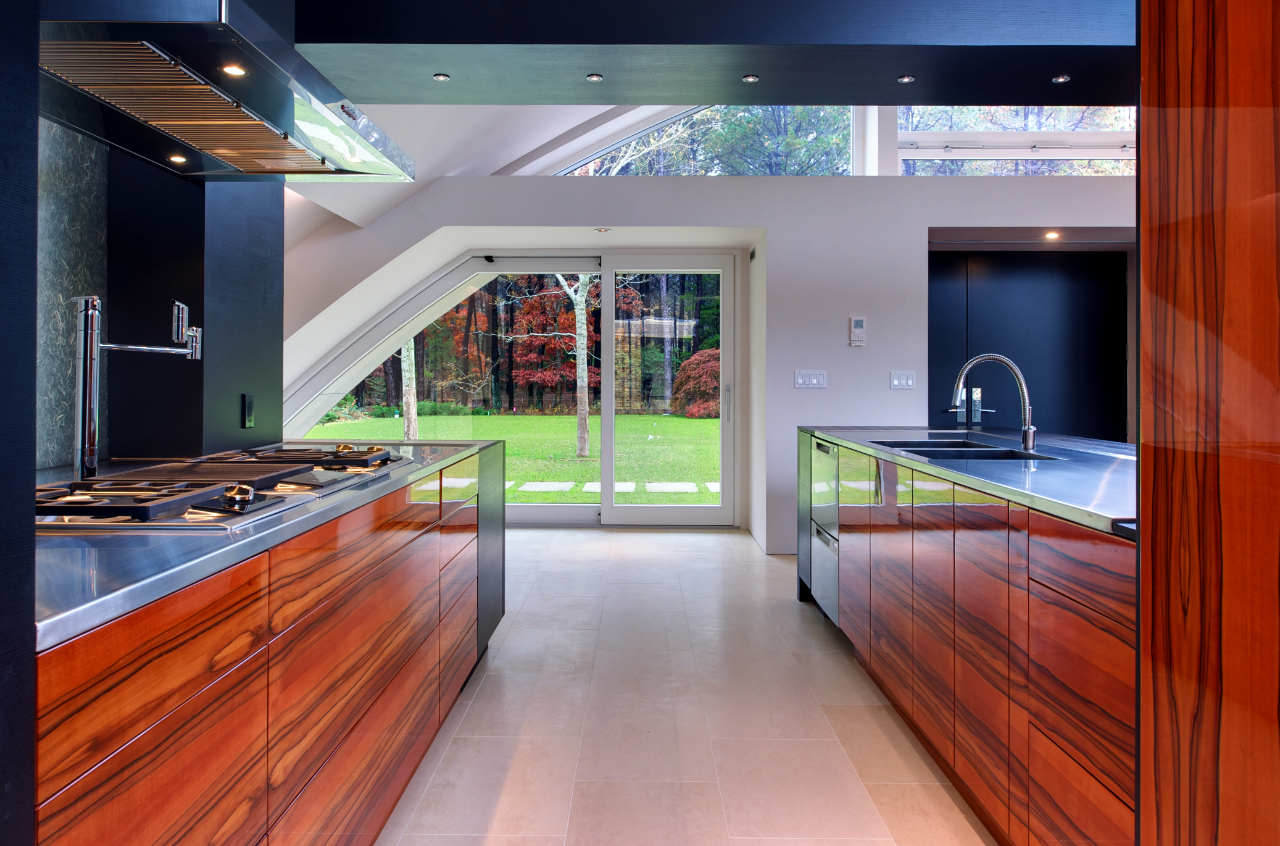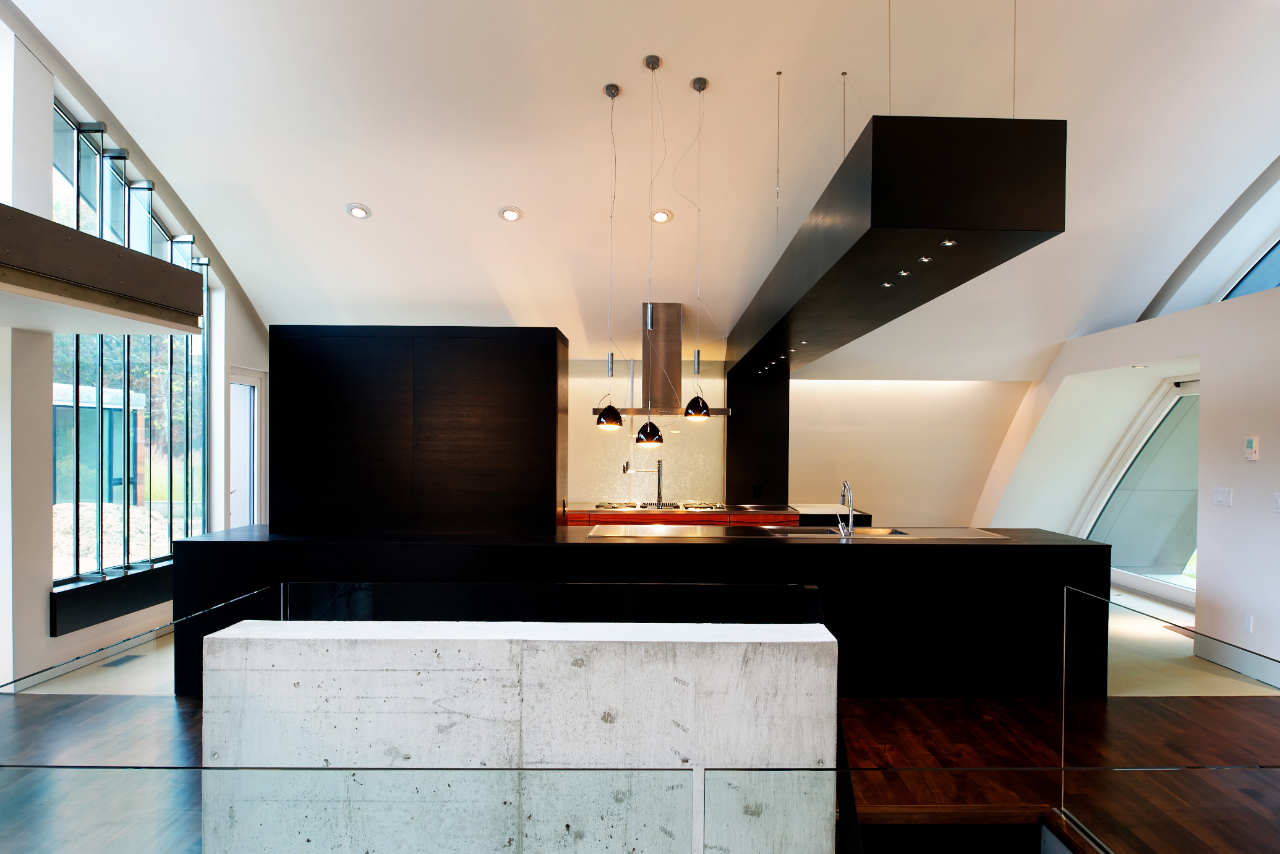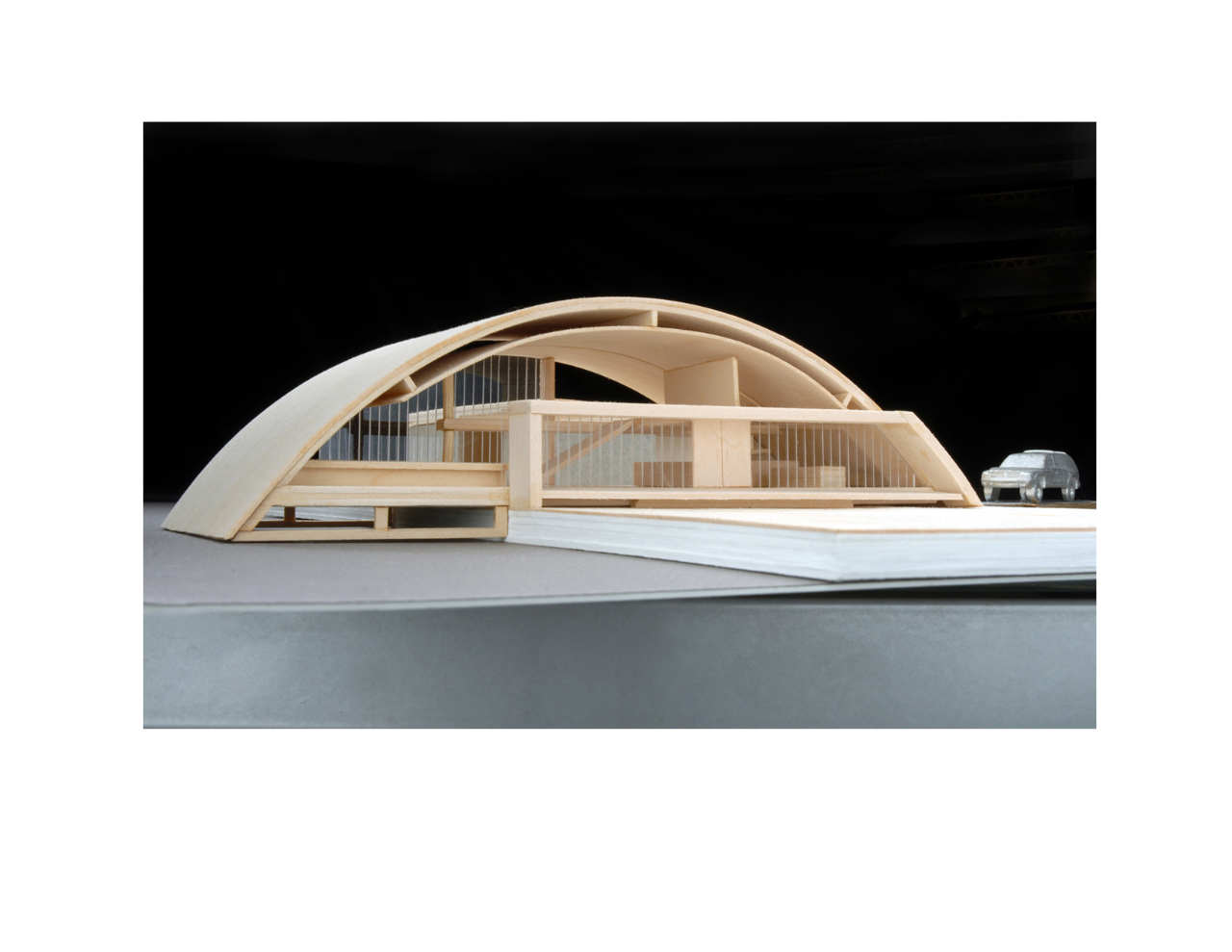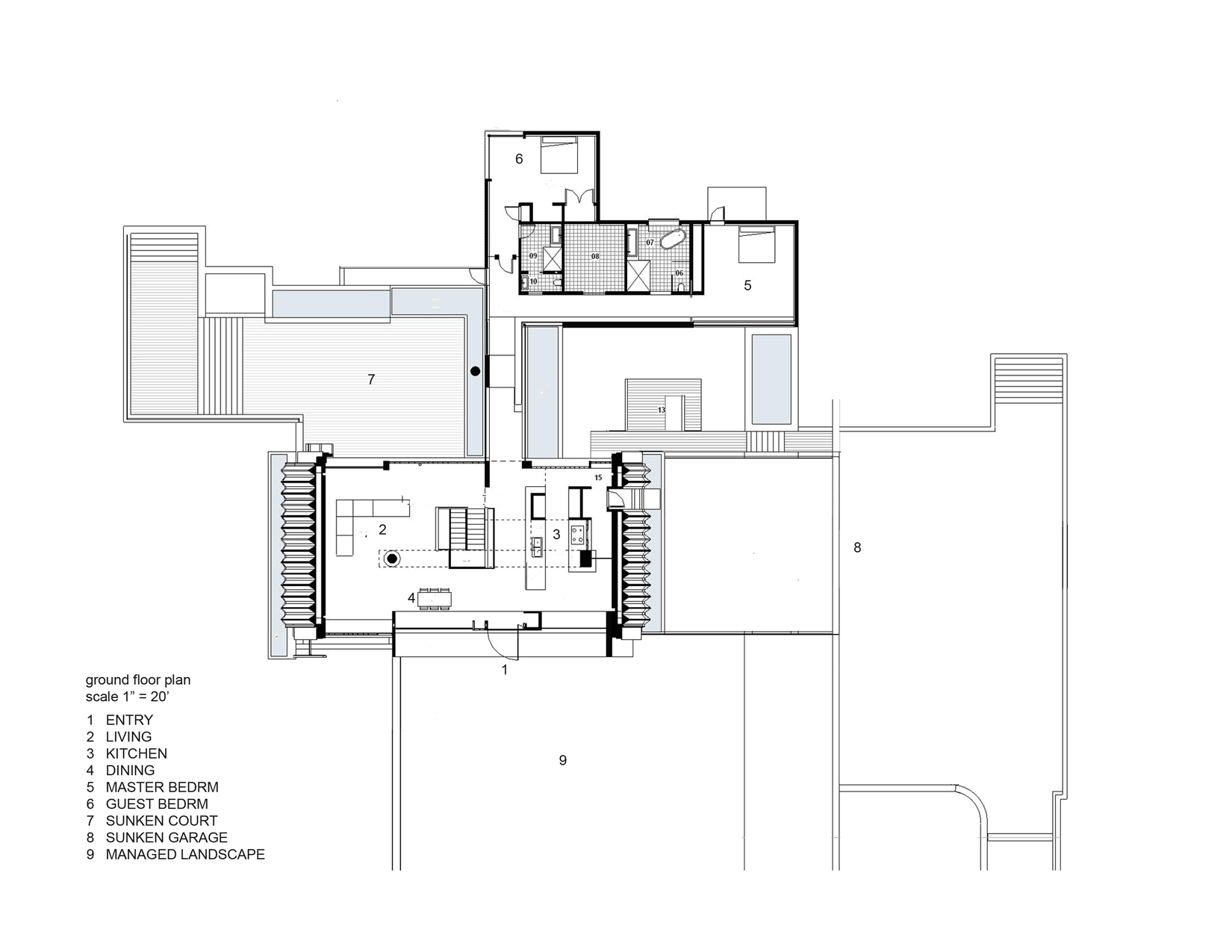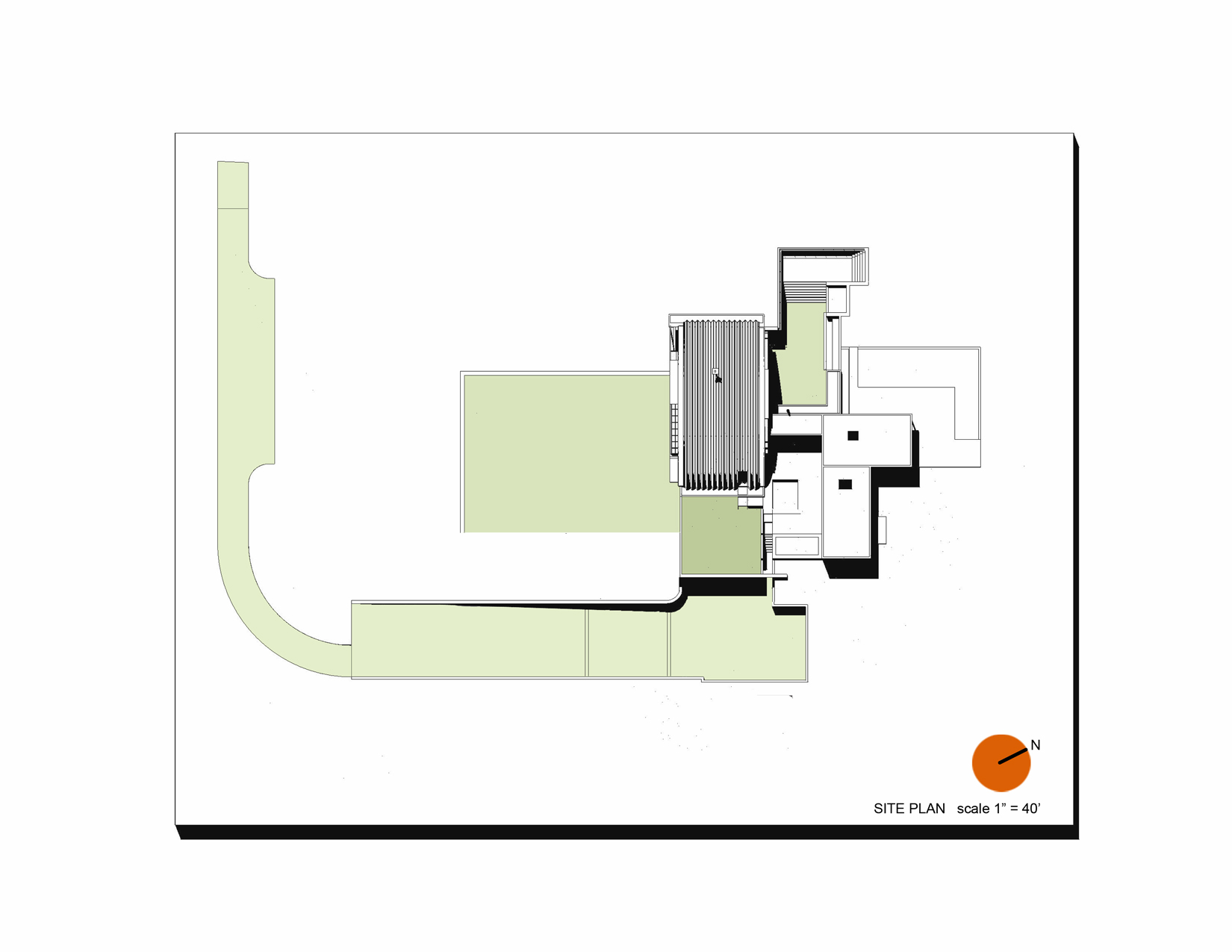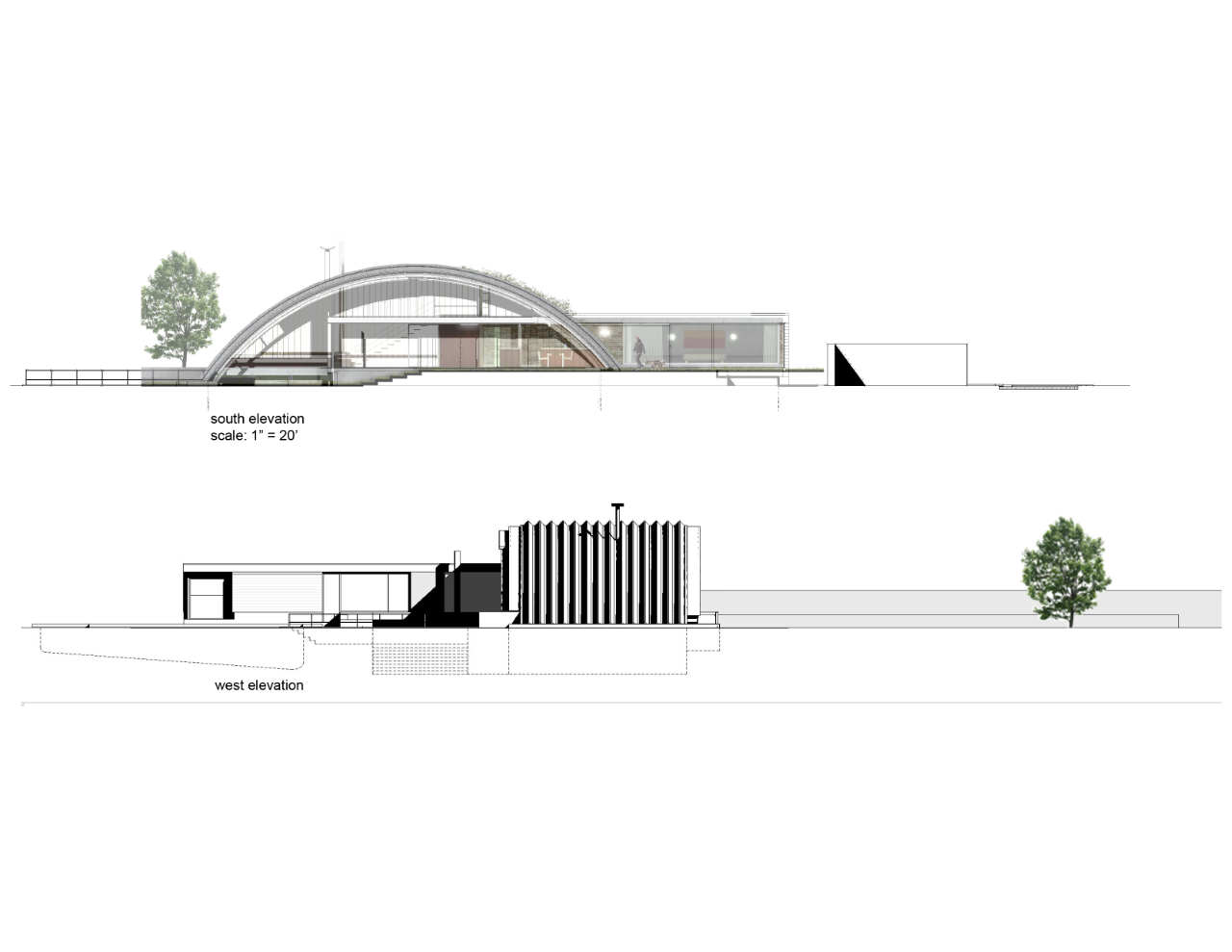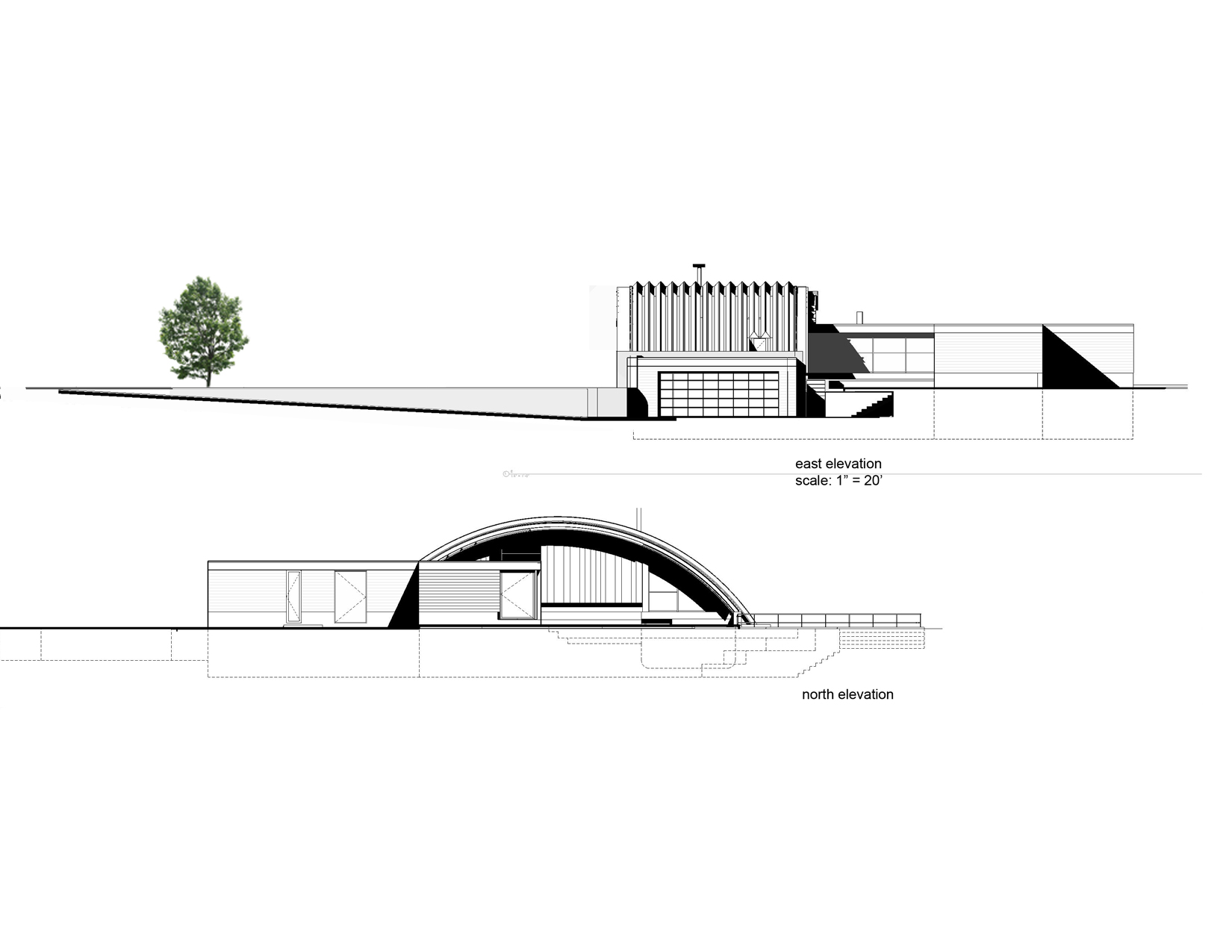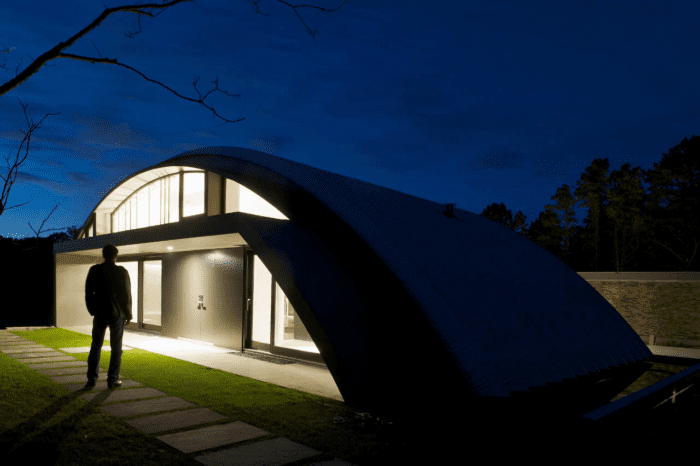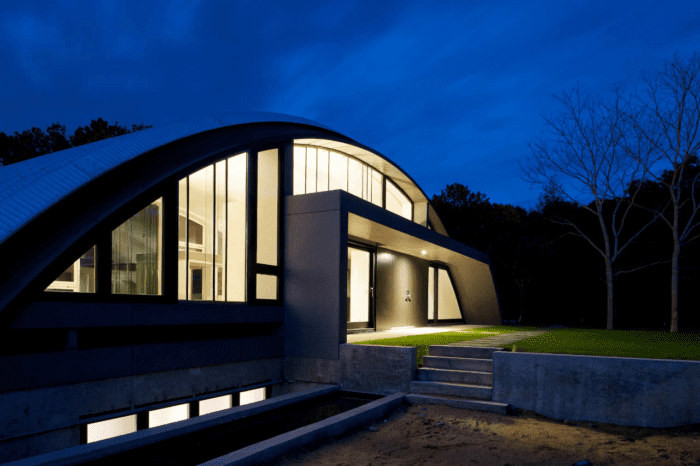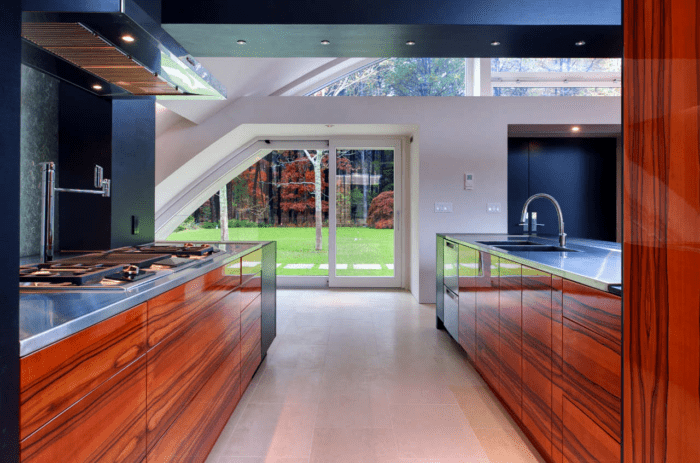Arc House
The site is under a flight path to the local airport and close to a train track. We felt that by using an industrial building technology, an airplane hangar, we would transcend the perceived limitations of such proximities. Further, we were all seduced by the idea of a large column-less self-supporting canopy that enclosed all the public spaces of the house -cost effectively.
The challenge was to find a scale for the arch that would transform this building system into an intimate and enclosed space. At a radius of 39’ with a peak ceiling height of 16’, we felt the building would be small enough to feel comfortable and yet have a sense of largeness associated with its uninterrupted ceiling curve.
The entry canopy to the arch and a few other components within it are at a height of 7’, creating a touchable lower plane within the larger structure. To allow the client flexibility to add future bedrooms, we decided to house them in a flat- roofed section, in the rear, that is made of structural insulated panels (SIPS).
The lower level houses an office, a sitting room, a garage and work out areas; part of the lower level opens to a courtyard that allows cool air circulation and a distinctly private outdoor space. By splicing the house into the landscape, we were able to transform the flat site into one with multiple horizons and take advantage of natural cooling and passive design.
The energy usage of the house is significantly less than a typical house of this size; due to both the arc shape and materials used. SIP panels, high-thermal windows, closed-cell foam insulation and a metal roof were chiefly used while the use of conventional lumber was limited to interior framing and the exterior cedar siding only.
Project Info
Architects: Maziar Behrooz Architecture
Location: New York, United States
Year: 2010
Type: Residential
Photographs: Matthew Carbone, Adam Friedberg, Mark Roskams
